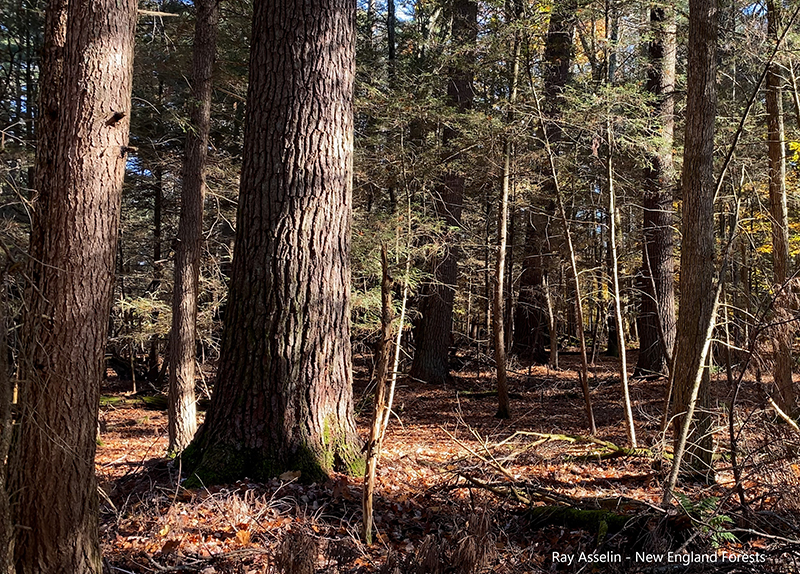In late September of 2023, Highstead’s Senior Ecologist Ed Faison presented at the Eastern Old Growth Forest Conference in Moultonborough, New Hampshire. Hosted by the University of New Hampshire Extension, this was the first conference of its kind since 2004 and convened leading forest scientists, environmentalists, and advocates of old forests from across the eastern United States for a three-day conference. More than 250 people attended.

Old growth forests were once the predominant forest condition but have been reduced to a tiny fraction (<0.5%) of our forests today by centuries of intensive timber harvesting and agricultural clearing. These old forests have outsized importance in terms of carbon storage and climate mitigation, biodiversity, and as a source of inspiration for people. Plenary speakers included environmentalist and author Bill McKibben, forest scientist Suzanne Simard, old growth expert Bob Leverett, and former Highstead Board Chair David Foster, ecologist and author.
The topic of wildlands was well represented at the conference. In his plenary speech, David made a strong case for protecting more wildlands, which are the old growth forests of the future. Trinity College Professor Susan Masino spoke about the importance of wildlands in her talk on forests and human well-being.
Ed spoke about the ecological resilience of wildland forests, presenting results from his recent paper, as well as data from other recent research on wild forests in the eastern United States. Ed noted that the capacity for resilience in forests is largely a function of the complex arrangements and diversity of the trees, both of which tend to increase over time in forests that are protected from management. In the words of ecologist and co-presenter Liz Thompson, “Nature knows how to manage forests, and has done so for millennia. We simply need to allow that to happen in many more places, across the region.”